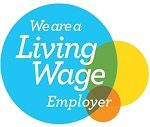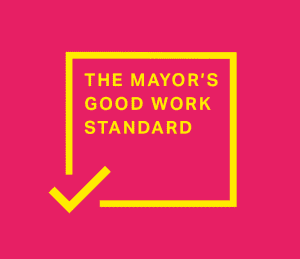Will it be fair and protect the most vulnerable? Why we’re concerned that September’s mini-budget won’t help those most in need

“This government isn’t for us. Why they want to help people who are comfortable already, I don’t know. It’s always about saving them.”
Nasrat, Toynbee Hall Peer Researcher
Toynbee Hall’s Research and Policy Peer Research Team reflect on the worsening cost of living crisis and call for fair and targeted policy measures in tomorrow’s mini-budget
At Toynbee Hall, we believe policies are most effective at tackling inequality when they are developed in collaboration with people who experience the sharp end of unfairness and ineffective policy first-hand. Through our Participatory Action Research work, we reach policy positions by working in collaboration with peer researchers whose lives are impacted by unjust and unfair systems and policies. We assess evidence together, drawing on relevant lived experience and learned knowledge. We also agree on how we should prioritise the policy asks we design together. Two key factors that peer researchers living in poverty often prioritise when assessing a policy are:
“Is it fair?” and “Will it protect the most vulnerable?”
As we look ahead to the government’s mini-budget due to be released tomorrow, we are concerned that the policies likely to be announced won’t pass either of these fairness tests.
As the cost of living crisis has unfolded over the past year, worsening the already unequal impact of the pandemic, we have heard clearly from people trapped in poverty which policies they judge would be effective in increasing fairness and protecting the most vulnerable, based on their direct experience of being on the sharp end of existing policies and economic exclusion.
We want to see these four key measures in tomorrow’s mini-budget:
- The immediate priority is to tackle soaring energy costs; the government should mandate energy companies to provide a social energy tariff, targeted at households who cannot afford their energy even with the energy guarantee in place.
- Many disabled people will have energy costs that outstrip the £150 extra support they receive; government funding must be made available to cover disabled people’s actual energy costs.
- Social security benefits need to cover the true cost of living; the government must increase welfare benefits in line with inflation.
- Rising rents will increase the risk of homelessness for the most vulnerable; the government must implement a private sector rent freeze and eviction ban until this cost-of-living crisis has passed.
Looking ahead, our communities have discussed a variety of ideas to improve wealth-sharing across all income brackets, including investment in holistic employment support, a boost in decently-paid jobs in health and ‘green’ industries, and support for community wealth building initiatives.
Our views on why the policies predicted to be in Friday’s mini-budget aren’t fit for purpose
The mini-budget is expected to include an estimated £30-£50 billion worth of tax cuts as part of a strategy that is intended to spur economic growth and reassure households amidst the cost-of-living crisis.
Yet the proposed changes could result in significantly larger savings and support for richer households in real terms than for those on lower incomes. Two of the possible proposals – a reversal of the National Insurance increase and raising the higher-rate income tax threshold – would, if enacted, save someone earning £80,000 around £6,800 a year, while only saving £218 for someone on £30,000[1]. The combination of the National Insurance cuts and the energy package would mean wealthier households can expect to receive £4,700 in support next year, whilst the poorest households would only receive £2,200 from the same changes[2].
If implemented, these proposals will be brought in against a backdrop of an Energy Price Guarantee due to be paid back by individual consumers while energy generators bring in record-breaking profits from the global oil crisis.
For the peer researchers we work with, while it is true that the extra cost of living payments and the prospective National Insurance cut will help to a limited extent, these interventions will in no way fill the gap in their household budgets caused by the cost-of-living crisis. And, looking ahead at the policies due to be proposed in the budget tomorrow, it’s clear that they unfairly benefit the wealthy, and are poorly targeted to help those in most need of support.
Peer researcher Paulette, reflecting on how the Energy Price Guarantee will be paid for, shares that “support needs to be targeted, including with businesses to those who need it. I am all for businesses succeeding. It generates the things that we need. But we’re talking about energy companies benefiting from some of the poorest people who have to pay the highest bills.”
Nasrat, who works at a local supermarket, reflects with bewilderment on the prospect of the tax rate moving for the highest earners: “We don’t even have £6,800 for the whole year! This government isn’t for us. Why they want to help people who are comfortable already, I don’t know. It’s always about saving them.”
The interventions on the table for tomorrow’s budget are neither fair, nor effective at protecting the vulnerable from the worst impact of the cost-of-living crisis. We urge the government to implement policies to protect the people and communities who are hardest hit, and which will reinvest profits in the economy towards creating a fairer future for all.
[1] R. Mortimer. (2022). When is the mini-Budget? Predictions and what to expect from Kwasi Kwarteng’s announcement. The Telegraph. Available from: https://www.telegraph.co.uk/money/consumer-affairs/mini-budget-2022-when-next-predictions-expect-kwarteng-truss-tax/. [Accessed on 22nd September, 2022].
[2] R. Partington. (2022). Liz Truss energy and tax plan ‘will give richest families twice as much support’. The Guardian. Available from: https://www.theguardian.com/business/2022/sep/13/liz-truss-energy-and-tax-plan-will-give-richest-families-twice-as-much-support. [Accessed on 22nd September, 2022].

































